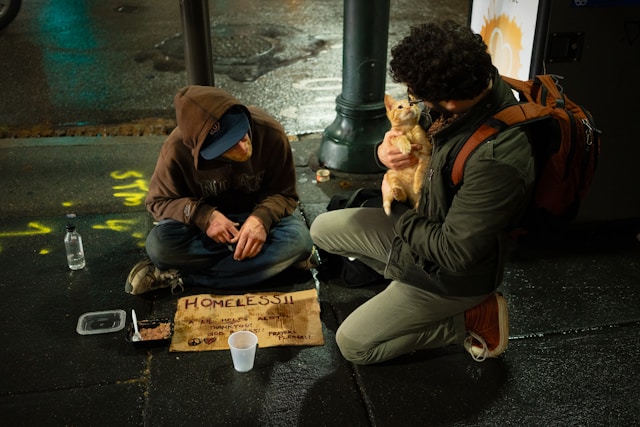Blessed is the man
who does not walk in the counsel of the wicked,
or set foot on the path of sinners,
or sit in the seat of mockers.
Psalm 1:1

https://unsplash.com/@adamjang
One of my favourite words is the
word sincere. The double syllabic consonants slide smoothly off the tongue.
It’s a soothing word in my mind; it summons up images of the type of humans I
like to be with; those who are genuine and unpretentious. There is a hygge feeling with the word. But I
self-reflect on the word as well. Am I the kind of person others are refreshed
by?
Some
years ago, I had an epiphany; I realised that many of the people in my life
were making me unhappy. Lack of empathy, gossip, slander, bullying, and control
tactics were the norm. I decided to withdraw and create new friendships. It
wasn’t an easy decision; it meant withdrawing from those whom I had known most
of my life. It also meant reinventing a new identity. The decision brought happiness. My epiphany was this:
as a person I was intrinsically happy. It was the unkind people in my immediate
proximity that brought negative energy into my life.
Ridding
such ones demands radical decisions. What if it’s your boyfriend, your
workmates, family, or friends? The truth of the matter is, we must enter the
darkness if you are to see the dawn, the new day.
How do
they treat you? Do they corrode your self-esteem by being offensive, then say
“I was only joking” or “You’re too sensitive” or “Get a life”? Do they bully
you to the extent that you never make your own decisions? Do they humiliate you
in public by saying you're too fat or stupid? Are they nice to your face but
criticise you behind your back? Do they defame your values, destroy your
dreams, flatter for profit and leave you as empty as a pocket?
You
cannot afford to be naïve and think they will change. They may have been this
way all their lives. Don’t think marrying your future partner will make it
happily ever… “Marry in haste; repent at leisure” the aphorism states.
Can you
categorise those in life that make you unhappy? Is the person a narcissist?
Uncaring, perhaps spoiled as a child. They always think of themselves first.
The language gives them away. The “I” and the “me” stand erect in every
sentence. They bully you into their way of thinking all the time.
There may
be economic considerations to consider. That will take planning. Hitch your
waggon to others that feel like you, who are kind and thoughtful and really
care. It maybe you can flat share to get away from the immediate crisis. This
is especially so where violence is involved. Remember, violence visited on a
partner leaves lifelong emotional scars on you and the children if you have
them.
Is it
friends that is the issue? Join a group where you can find new friends. Is it
family? Remember, you are attached to family by reason of history, but
genetically, you are almost as much related to every human. Find another
family. Join a walking, photography, writing, language or sports group. The
internet is full of sources and meetups. In many cases, some groups have people
who have shared and have suffered what you have gone through. God bless your
efforts.
Fix my own steps solidly in your saying.
And may no kind of hurtful thing domineer over me.
Psalm 119:133

























